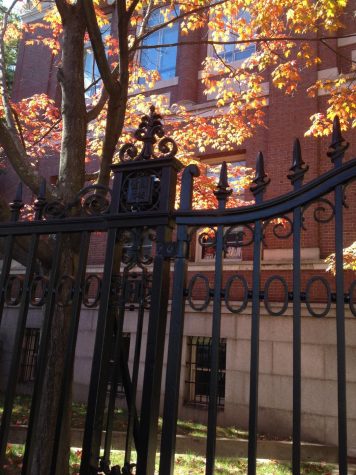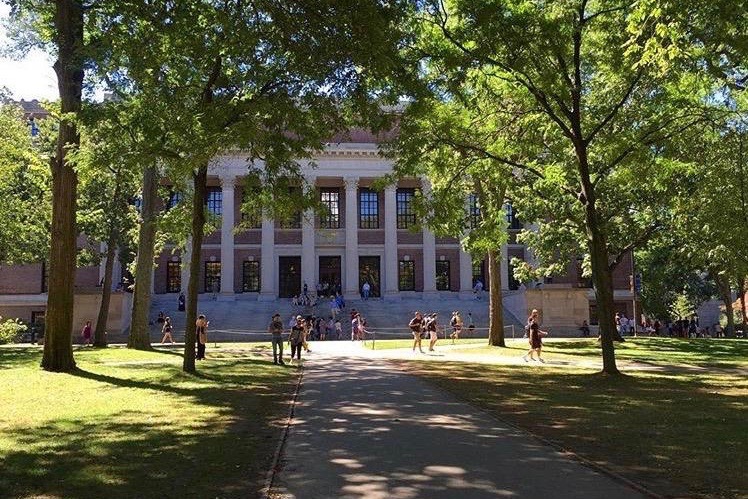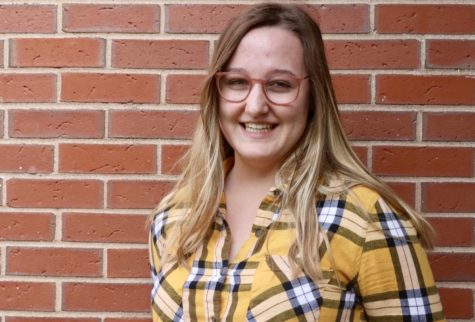Potential online fall semester concerns Wayland’s future and current college students
Credit: Joanna Barrow
After weeks of remote learning and canceled plans, colleges have to reckon with an unfortunate reality: the coronavirus might mean school campus closures during the fall semester.
May 15, 2020
The coronavirus pandemic is far from over, and its consequences might stretch farther than students initially thought: the 2020 fall semester is now in jeopardy.
Depending on the status of COVID-19, schools may decide not to reopen their campuses. Though Boston University (BU) is currently planning to resume its on-campus residential program come autumn, its “Recovery Plan” recognizes that health officials may deem it unsafe to return. In that case, they’re entertaining the possibility of delaying the reopening of their campus until January 2021.
While BU’s “Recovery Plan” deems this scenario “unlikely,” it may be a likely future. This possibility of delaying reopening is one that is adding onto the uncertainty felt by the WHS’ class of 2020.
“Unfortunately, I think an online semester is extremely likely,” senior Gabriella Rostler said. “[With an online semester], I don’t think I would be challenged enough academically and emotionally. I’d feel very isolated. I also think a potential obstacle with an online semester would be people not getting productive learning done or motivating themselves to do the work.”
Both WHS students and alumni in college have already had to adjust to virtual learning platforms, which is a challenge that has not been without academic and emotional obstacles.
“[Online learning has] been hard to get used to,” Rostler said. “I don’t think I could benefit from it over a long period of time.”
WHS 2019 alumnus and current freshman at Syracuse University, Audrey Chen, expresses that her experience with an online college education has not been easy.
“Emotionally, I have struggled to maintain motivation because most live classes have been accommodated so [that] they are not mandatory to attend at the scheduled time because they are all recorded,” Chen said. “This is both a negative and positive because it allows for procrastination, but also gives you access at any time to learn.”
Chen is pursuing a marketing management education at the Whitman School of Management at Syracuse University. As such, she details that the virtual gap between student and professor has been especially trying in her courses.

“The biggest obstacle for me has been being able to retain material taught through online courses,” Chen said. “Although all the lectures are live with our professors, it’s not the same learning environment, so it’s harder to pay attention and follow along, especially with classes like accounting and math.”
Chen still remains optimistic about an on-campus fall semester at Syracuse University. Yet, Chen foresees that the fall semester will not come without some changes.
“Syracuse University has expressed optimism in returning to campus for the fall 2020 semester,” Chen said. “I think it is likely that we will be returning to campus with cautiousness and new regulations during this pandemic.”
However, a WBEZ article quoted Nicholas Christakis, a sociologist and physician at Yale University studying how the coronavirus spreads as having different projections about this fall.
“I don’t think there’s any scenario under which it’s business as usual on American college campuses in the fall,” Christakis said. “This idea that we can somehow just get back to normal and go back to school in the fall, because we always have, it’s not reasonable, actually.”
College is a social distancing nightmare as students live in close quarters, share amenities and gather in large groups. A working paper by two professors of sociology at Cornell University shows how easy it would be for the virus to spread on a college campus. And while social distancing is not the only way to combat the spread of the virus, it’s what the United States has been depending on, and would need to be replaced by another means of stopping the disease.
According to an article on Vox, such means would require a “comprehensive, extremely ambitious plan… [with] an immense amount of leadership, coordination and more sacrifice.”
That being said, colleges will most likely need a back-up plan. Many ideas are floating around for what a salvaged fall semester could be like: colleges might continue online classes, continue online for large classes but reinstate smaller classes, push the start of the term or adapt the traditional academic calendars to allow for more flexibility.
For many schools, however, continuing courses online is viewed as a last resort. Too many headaches have arisen in the past few weeks as many colleges shifted their curriculums to online platforms, and students have reacted negatively to their experience with digital learning. In a survey conducted by Niche, only 15 percent of college students find online classes as effective as in-person instruction–a statistic that is parallel to both Rostler and Chen’s experiences.
In fact, in an interview with Review Atlas, a student said that if his classes remained online in the fall, tuition in tow, he would simply wait until the spring to resume his studies. This trend is not uncommon as colleges across the country are grappling with the issue that students might not return.
In the same survey by Niche, 70 percent of college students said that how their school responds to this crisis will impact their decision to enroll in the fall, with 22 percent of college students considering a transfer or taking time off.
Chen has experienced the importance of a fall semester her freshman year and reflects on its importance.
“An online semester would impact incoming freshmen by withholding very meaningful experiences with academic and social independence,” Chen said. “It would dull down the great experiences, opportunities and friendships that come with freshman year at college.”
Wayland’s class of 2020 has high hopes and ambitions for their future, as Rostler emphasizes, making the threat of an online semester especially concerning.
“I’m most excited for meeting new people and being in a new environment [in college],” Rostler said. “For me, it’s important to start on time because I want a traditional college experience that I have been waiting for for a long time. I also think experiencing my first college class online would not be the best for me and many students academically.”
For prospective freshmen, the pandemic has made it impossible for them to visit college campuses before they commit, though some schools have extended the deadline to accept or decline an offer of admission to help students with this. According to a survey conducted by the research and consulting firm, Maguire Associates, the decision making process for choosing schools has been impacted for nine out of 10 students.
Compounded, colleges are facing an ugly reality: after spending money to move learning online and refunding room and board, colleges may see a significant decrease in how much they receive in tuition next fall. This is especially true for colleges who rely on foreign students to pay the entirety of the tuition as travel restrictions may impede those students’ ability to attend American schools.
Colleges are now being offered federal stimulus packages to stay afloat, but it doesn’t change the reality that for many schools, as well as students, hard times are ahead.
While WHS seniors are undoubtedly anxious about their fall semesters, Rostler understands the reasoning and importance of moving classes online.
“Academically, I don’t see any benefits of an online semester,” Rostler said. “However, it [would be] obviously positive in that it would prevent the spread of [the coronavirus].”
Below is an infographic representing a portion of WHS students’ thoughts on the possibility of colleges switching over to an online learning environment for the 2020 fall semester.





![Last Wednesday, the Wayland School Committee gathered to discuss a number of topics regarding the health curriculum and Innovation Career Pathway course. Another large topic of conversation was the ways to potentially mitigate distracting cell phone usage. "These [phones] are going to distract your learning and social relationships," Superintendent David Fleishman said. "That's concrete right there."](https://waylandstudentpress.com/wp-content/uploads/2025/06/Screenshot-2025-06-04-at-9.49.31 PM-1200x886.png)



























![Troy Hoyt finishes the Boston Marathon, running for the Hoyt Foundation. T. Hoyt is the son of Hoyt Foundation CEO Russ Hoyt.
“[Running a marathon] might seem like a big thing, when it’s presented to you at first, but if you break it up and just keep telling yourself, “Yes, you can,” you can start chipping away at it. And before you know it, you’ll be running the whole 26 miles, and you won’t even think twice about it.” T. Hoyt said.](https://waylandstudentpress.com/wp-content/uploads/2025/04/C36E8761-1CBB-452E-9DF2-543EF7B1095E_1_105_c.jpeg)















































